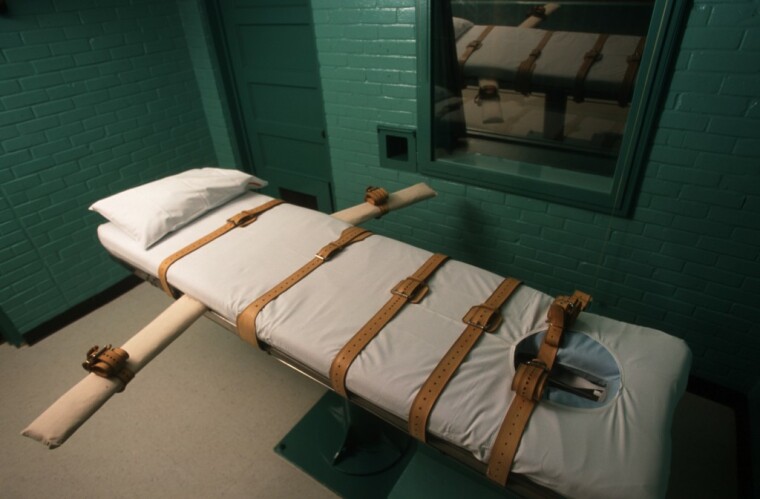Evangelicals divided: Statement from NAE softens stance on death penalty

WASHINGTON (Christian Examiner) – The National Association of Evangelicals has added its name to the list of Christian organizations now questioning the death penalty in the United States, a resolution from the association said Oct. 15.
According to a statement on the organization's website, "Evangelical Christians differ in their beliefs about capital punishment, often citing strong biblical and theological reasons either for the just character of the death penalty in extreme cases or for the sacredness of all life, including the lives of those who perpetrate serious crimes and yet have the potential for repentance and reformation. We affirm the conscientious commitment of both streams of Christian ethical thought."
However, even though the group affirms the Apostle Paul's admonition that governments are instituted by God to administer justice for God, and to "protect citizens and preserve the common good," it notes that all "human systems are fallible."
"Nonpartisan studies of the death penalty have identified systemic problems in the United States. These include eyewitness error, coerced confessions, prosecutorial misconduct, racial disparities, incompetent counsel, inadequate instruction to juries, judges who override juries that do not vote for the death penalty, and improper sentencing of those who lack the mental capacity to understand their crime," the statement from the NAE said.
"In the first decade of the 21st century, 258 wrongfully convicted people have been exonerated due to the introduction of DNA evidence. Twenty of those were serving time on death row, and another 16 had been convicted of a capital crime but not sentenced to death."
Because of the fallibility of human systems, documented wrongful convictions, and our desire that God's grace, Christian hope, and life in Christ be advanced, a growing number of evangelicals now call for government entities to shift their resources away from pursuing the death penalty and to opt for life in prison without parole as the ultimate sanction.
The new statement significantly expands upon and alters the NAE's past position on capital punishment, issued in 1973, the year after the Supreme Court ruled the death penalty unconstitutional in all but a few cases. It reinstated it with tighter controls in 1976. Many states, such as California, later banned the penalty, but also allowed it again years later.
The 1973 resolution from the NAE said the court's action emboldened criminals and caused numerous victims of lesser crimes to become murder victims since the threat of capital punishment was removed.
"If no crime is considered serious enough to warrant capital punishment, then the gravity of the most atrocious crime is diminished accordingly. It follows then that the attitude of criminals will be affected," the 1973 resolution said.
"We strongly reaffirm our resolution of 1972 concerning capital punishment, and we call upon congress and state legislatures to enact legislation which will direct the death penalty for such horrendous crimes as premeditated murder, the killing of a police officer or guard, murder in connection with any other crime, hijacking, skyjacking, or kidnapping where persons are physically harmed in the process."
Now, the NAE has softened its stance claiming that the American system of justice is "unlikely to reach" the high standards of evidence necessary for a death sentence under Mosaic Law, which most Christians see as a guiding force in the application of capital punishment.
"Given the utter seriousness of capital crimes, the alarming frequency of post-conviction exonerations leads to calls for radical reform," the statement said.
"Because of the fallibility of human systems, documented wrongful convictions, and our desire that God's grace, Christian hope, and life in Christ be advanced, a growing number of evangelicals now call for government entities to shift their resources away from pursuing the death penalty and to opt for life in prison without parole as the ultimate sanction. They argue that such a move would allow time for the exoneration of the wrongfully convicted, avoid the tragic error of wrongful execution, and advance a higher sense of justice."
Many evangelicals will not be accepting of this softened position, and the NAE is aware of that. It said in its statement that many still believe capital punishment is a deterrent to crime and the best way to bring relief to the families of victims.
"Despite differing views on capital punishment, evangelicals are united in calling for reform to our criminal justice system. Such reform should improve public safety, provide restitution to victims, rehabilitate and restore offenders, and eliminate racial and socio-economic inequities in law enforcement, prosecution and sentencing of defendants," the statement said.
Heather Beaudoin, director of Evangelical Outreach for Equal Justice USA and national coordinator for Conservatives Concerned about the Death Penalty, praised the new statement from the NAE.
"Clearly we are seeing growing concerns among the NAE leadership about problems with the death penalty," Beaudoin said. "These concerns mirror what I have been hearing when I talk to Christians across the country. More of them are questioning their support for the death penalty as they learn about its mistakes and bias. I am overjoyed that the NAE has taken so much leadership in fostering this dialog."
The NAE represents more than 10 million evangelicals in more than 40 denominations.